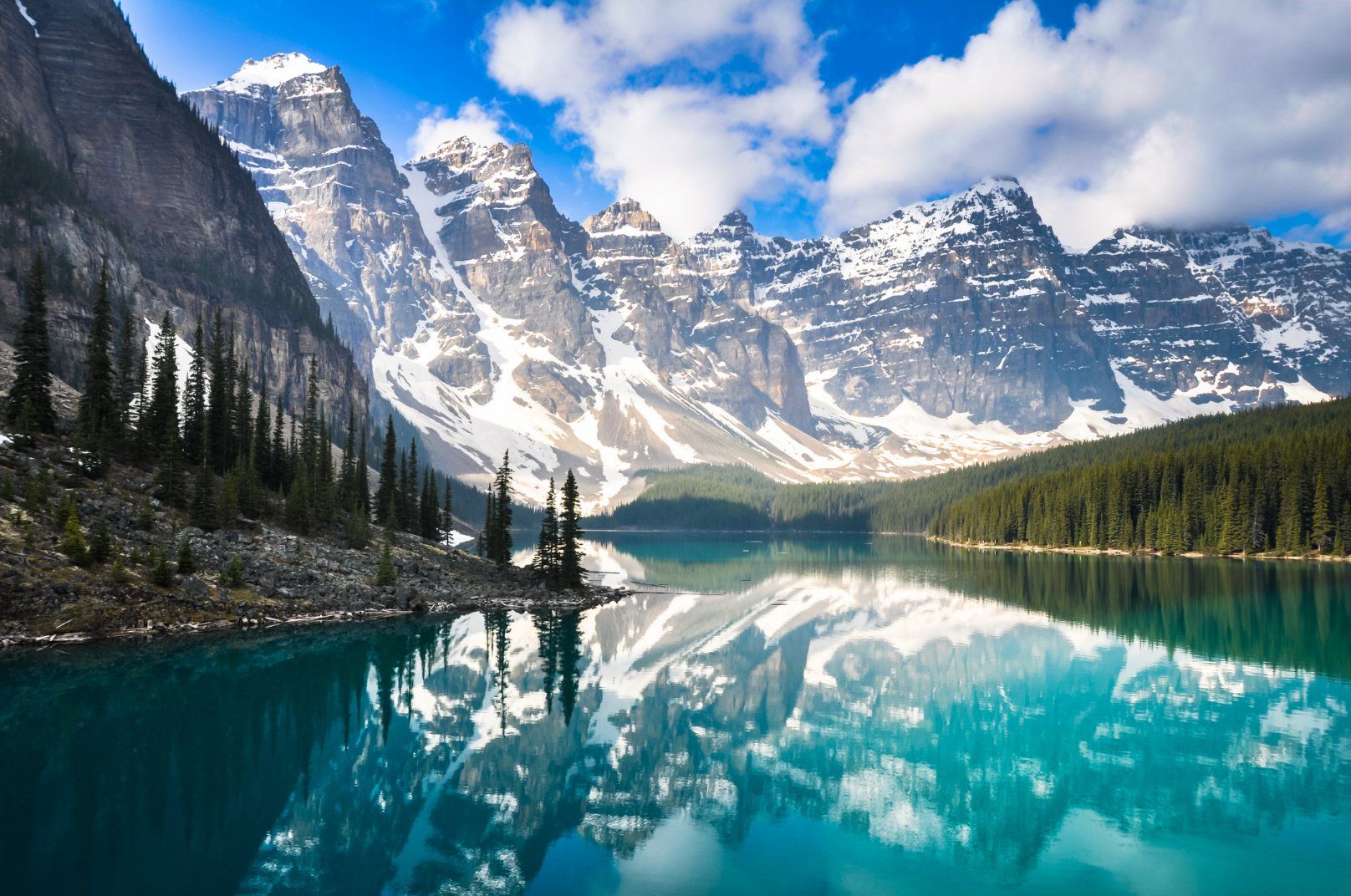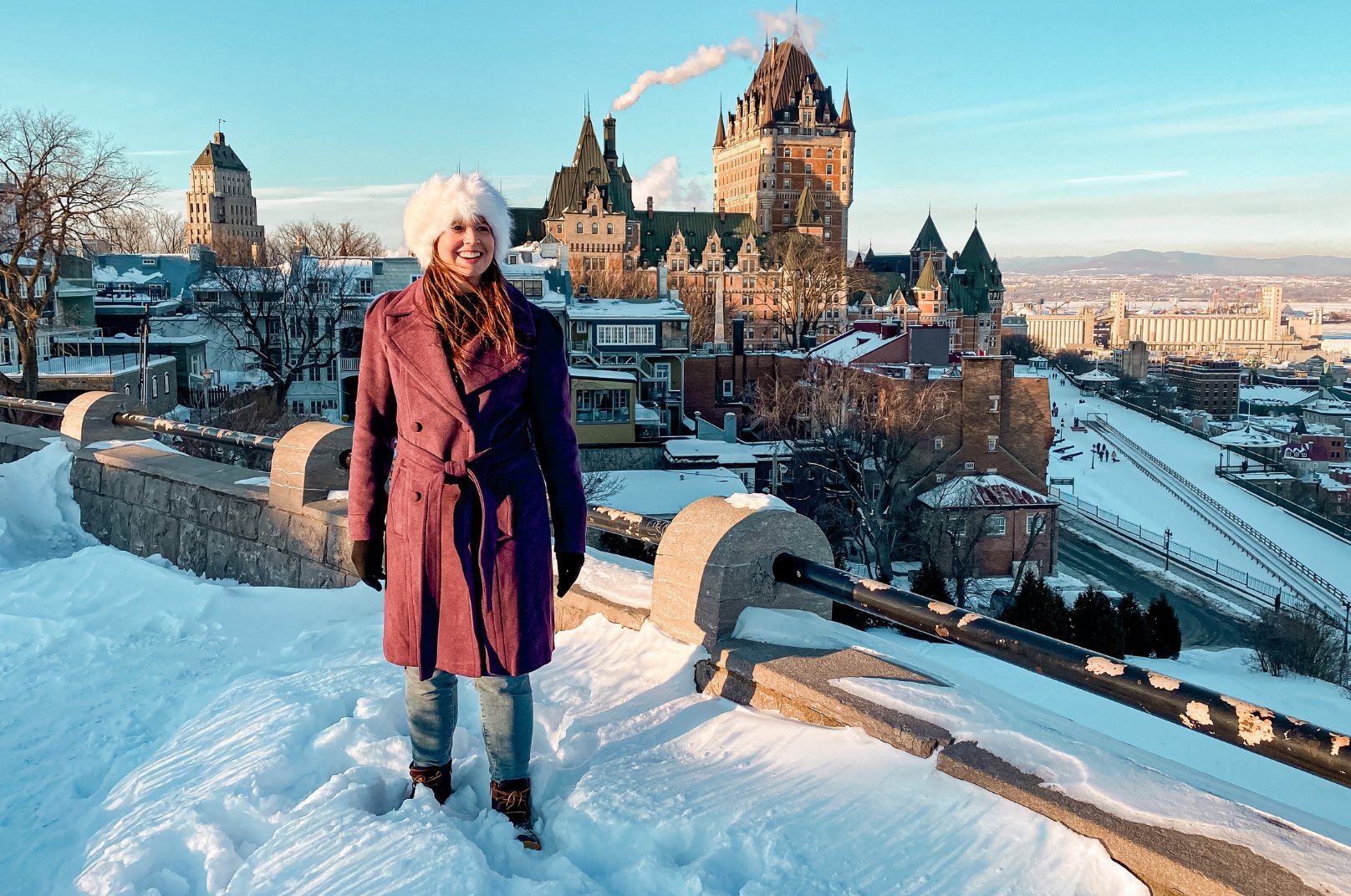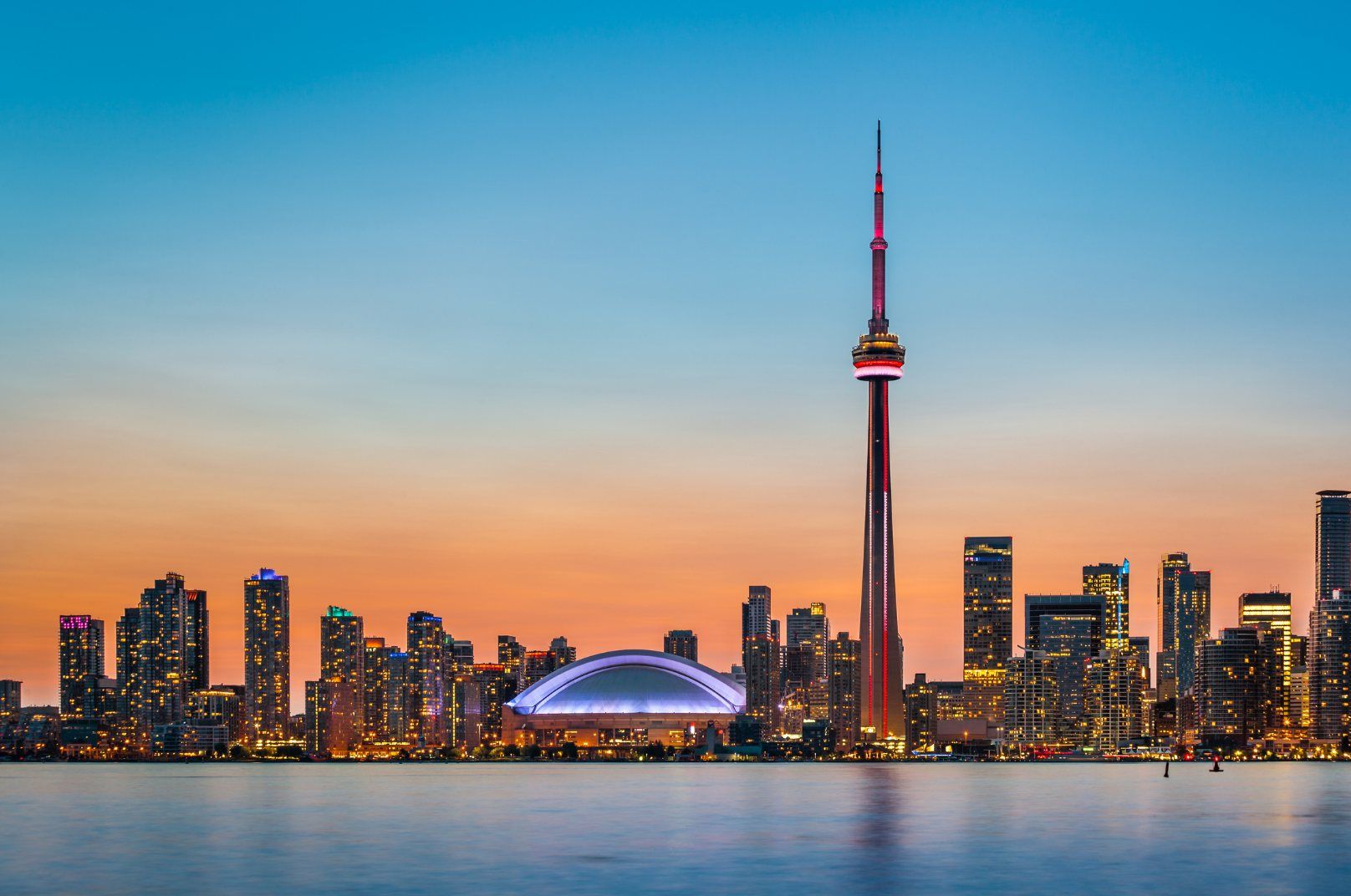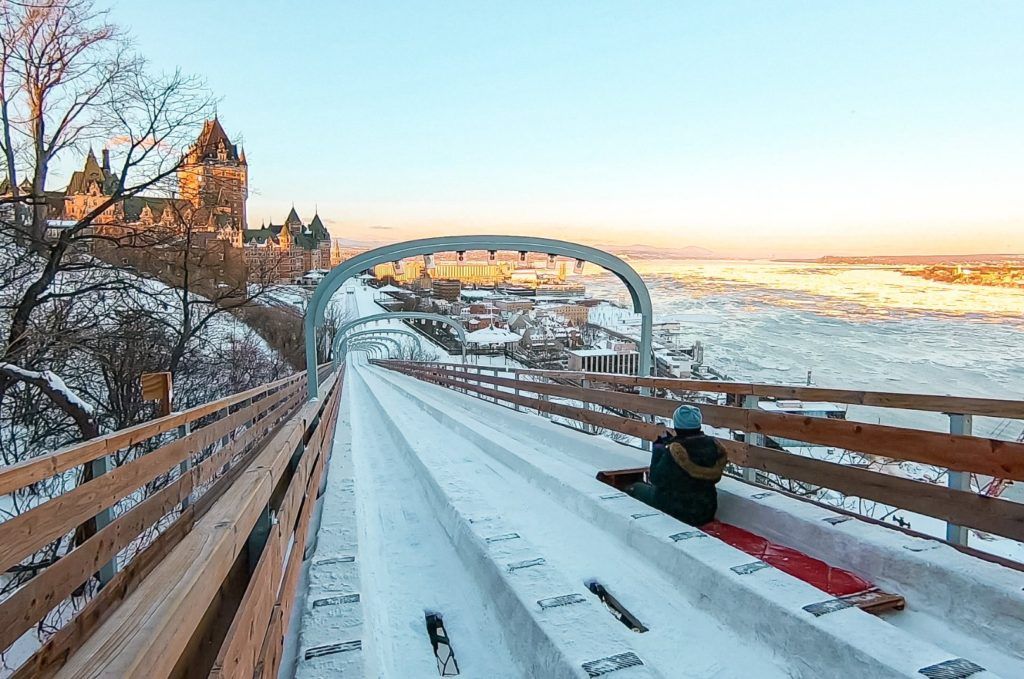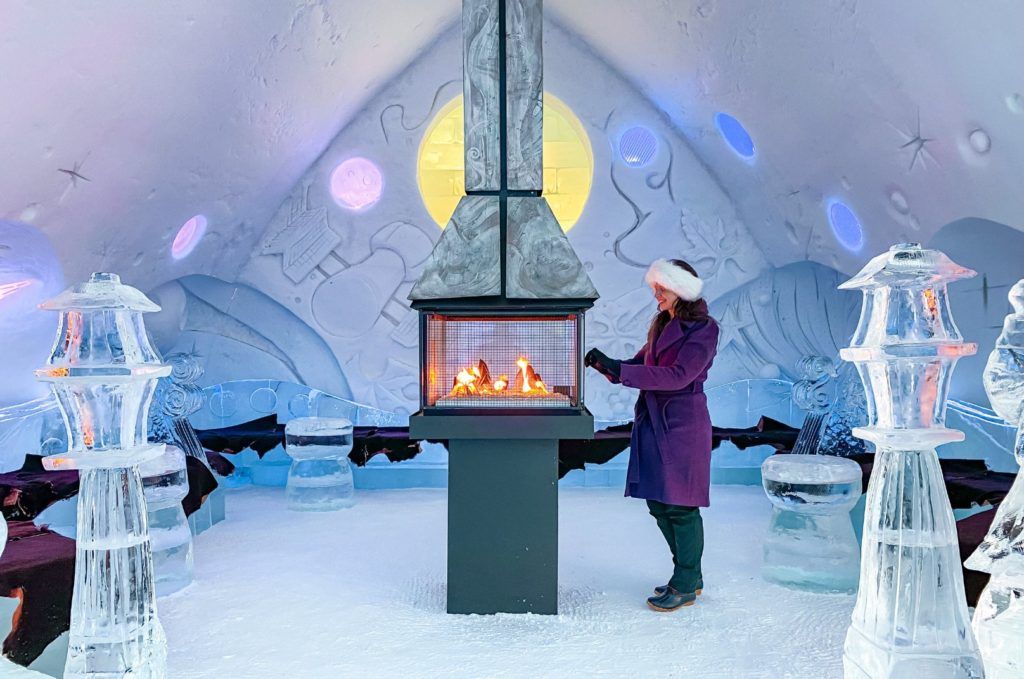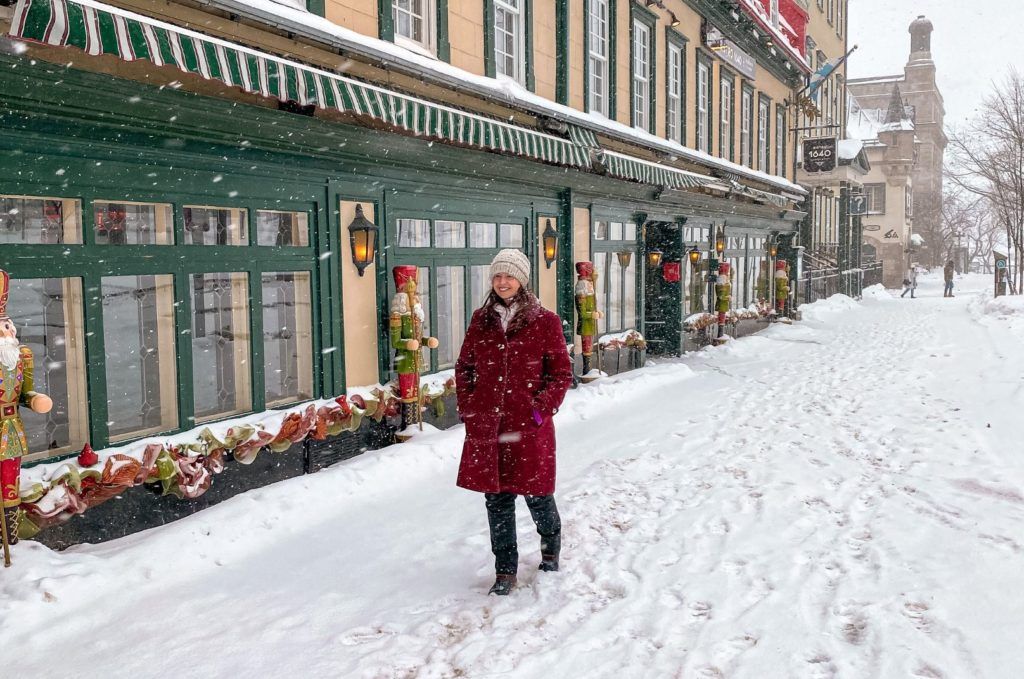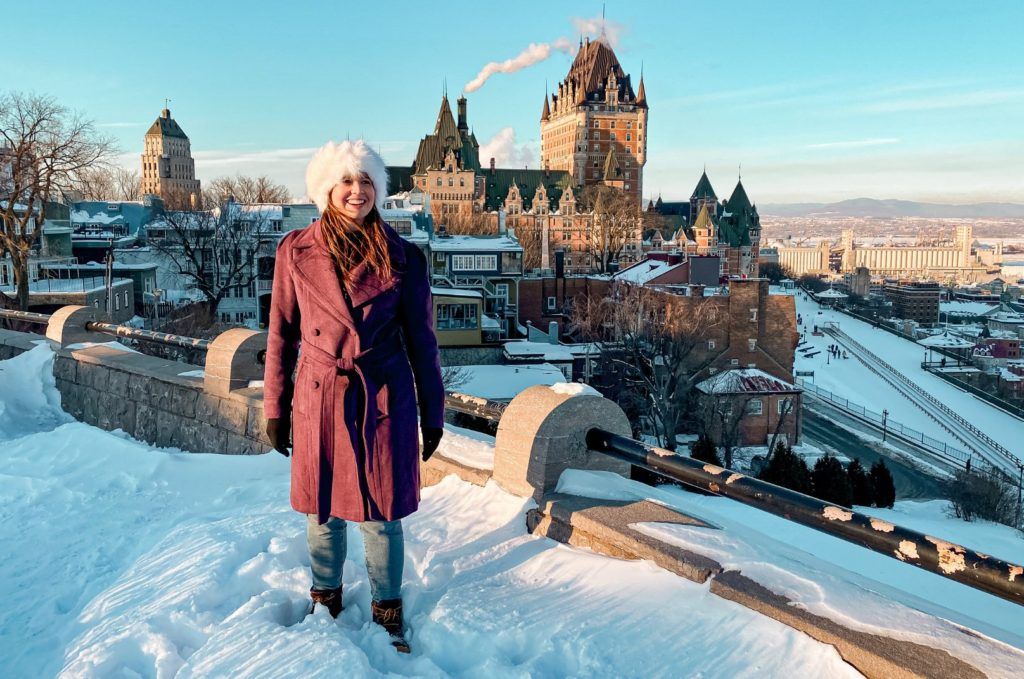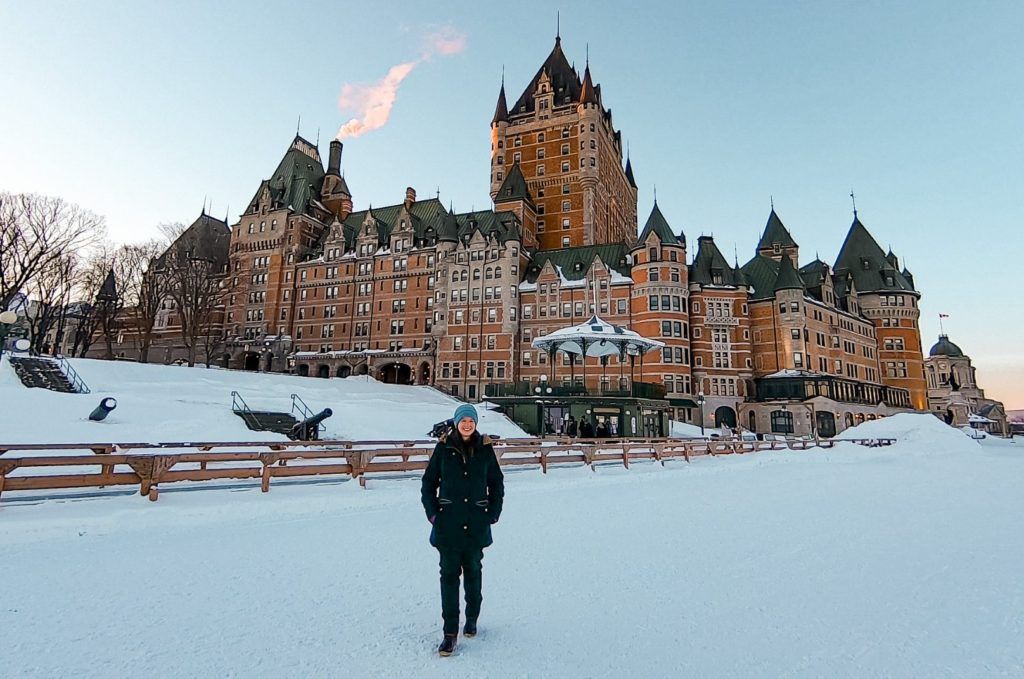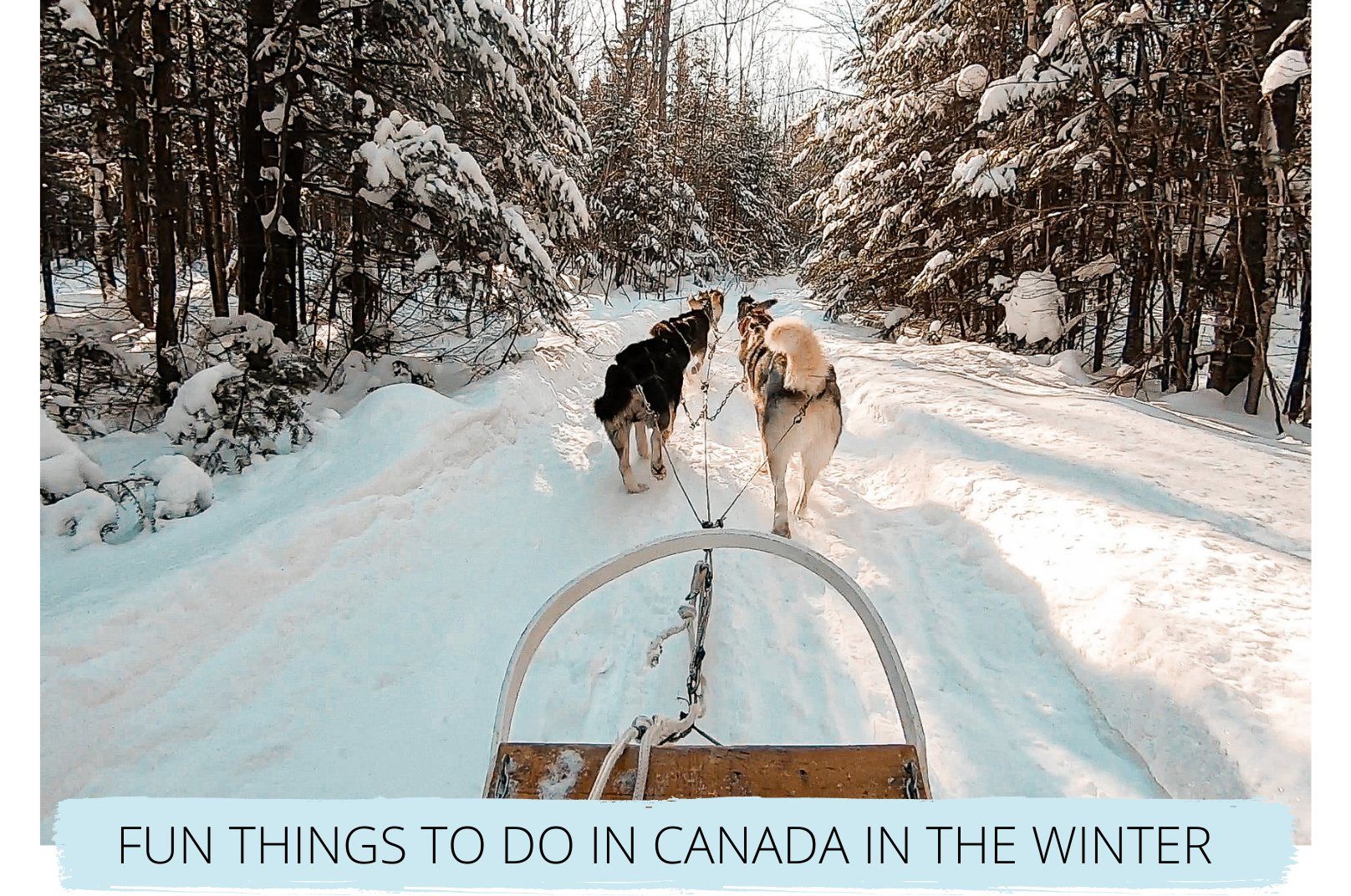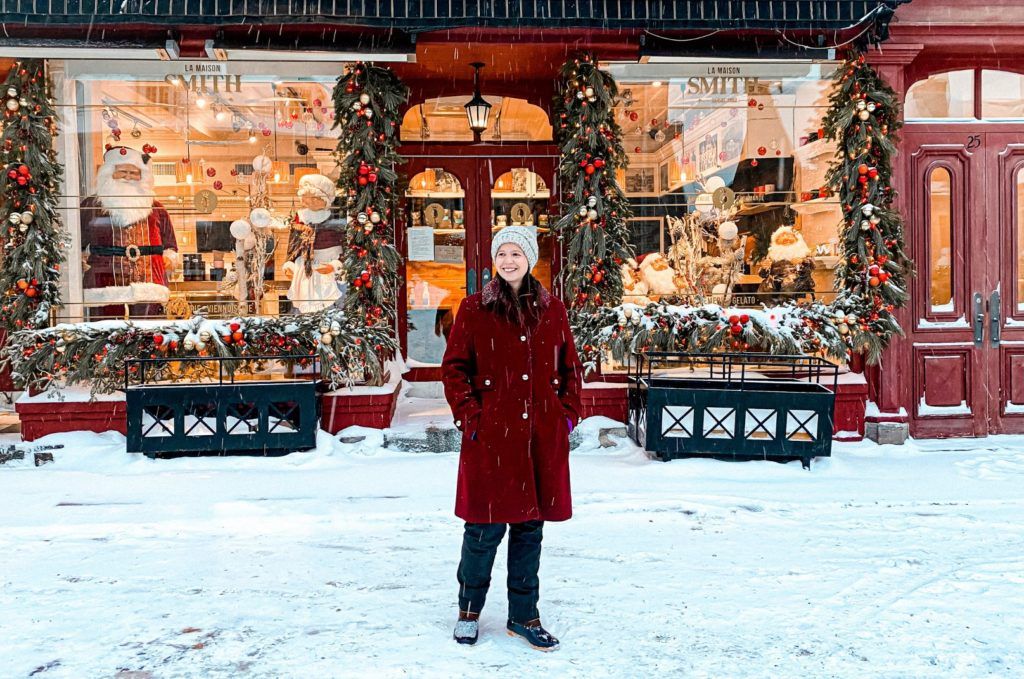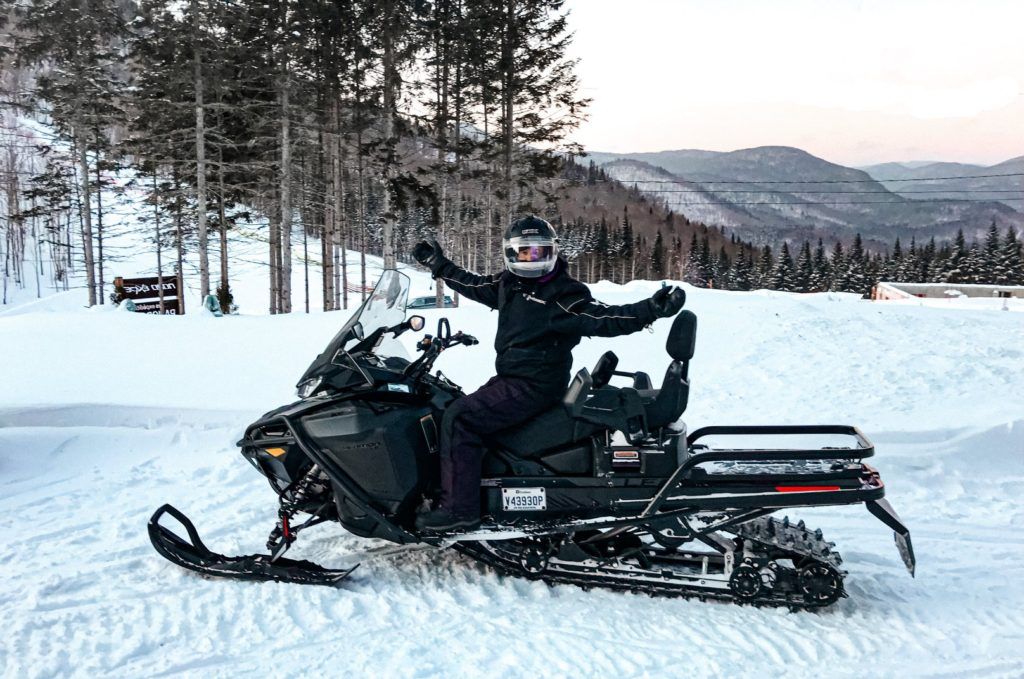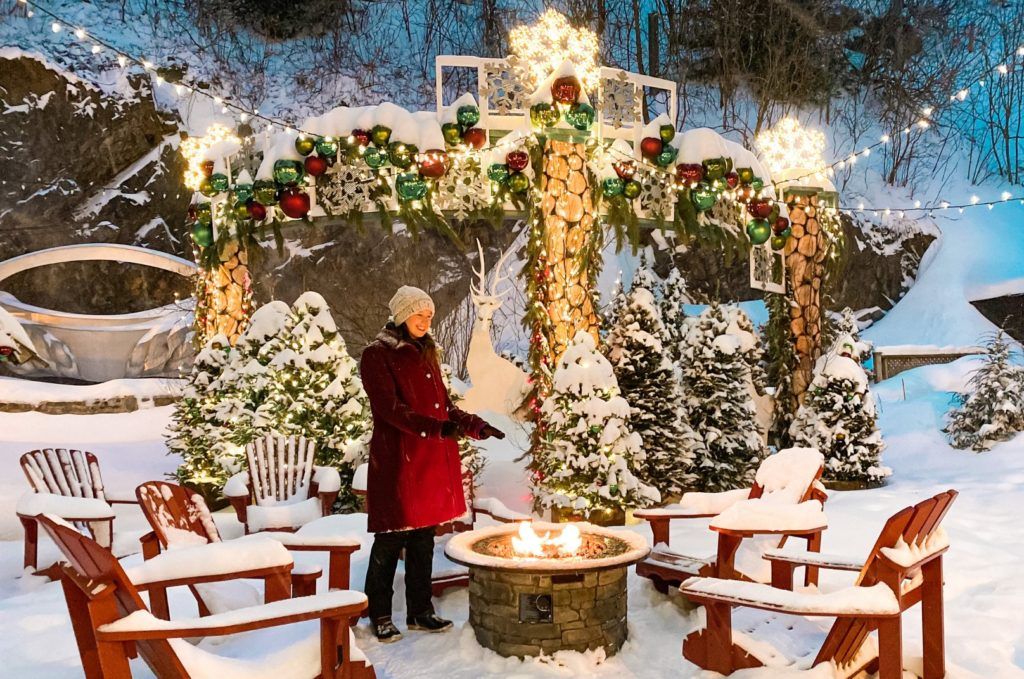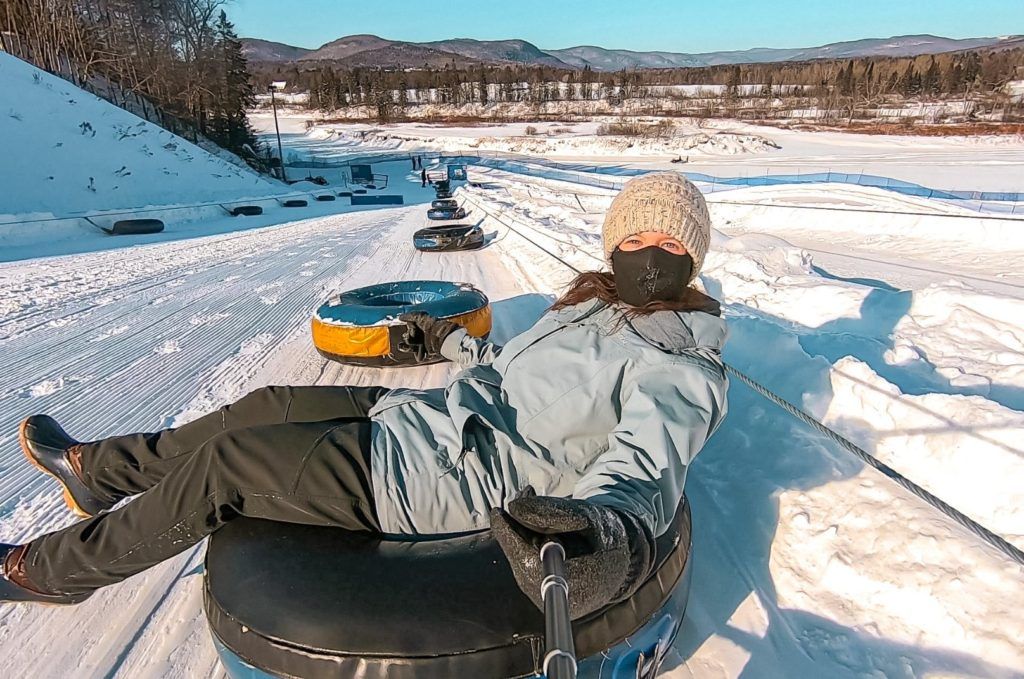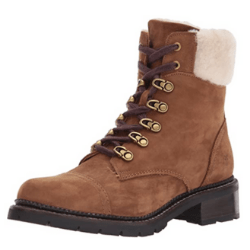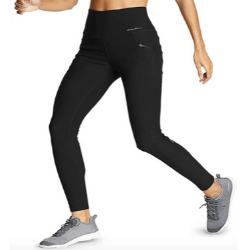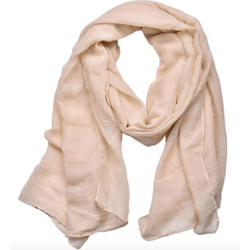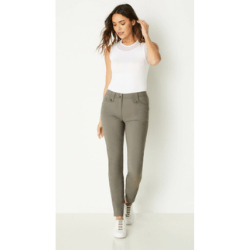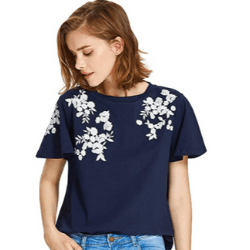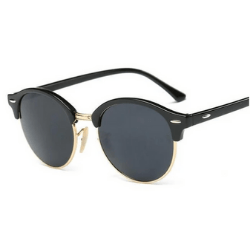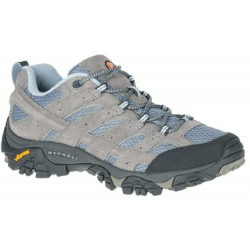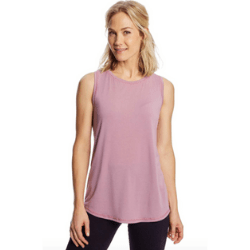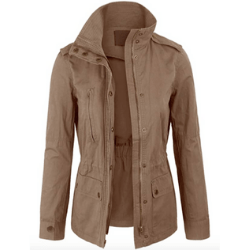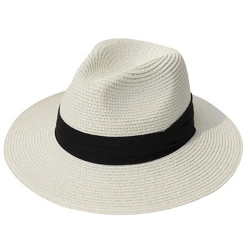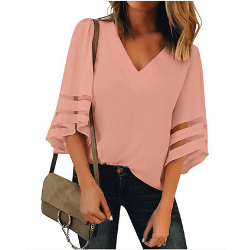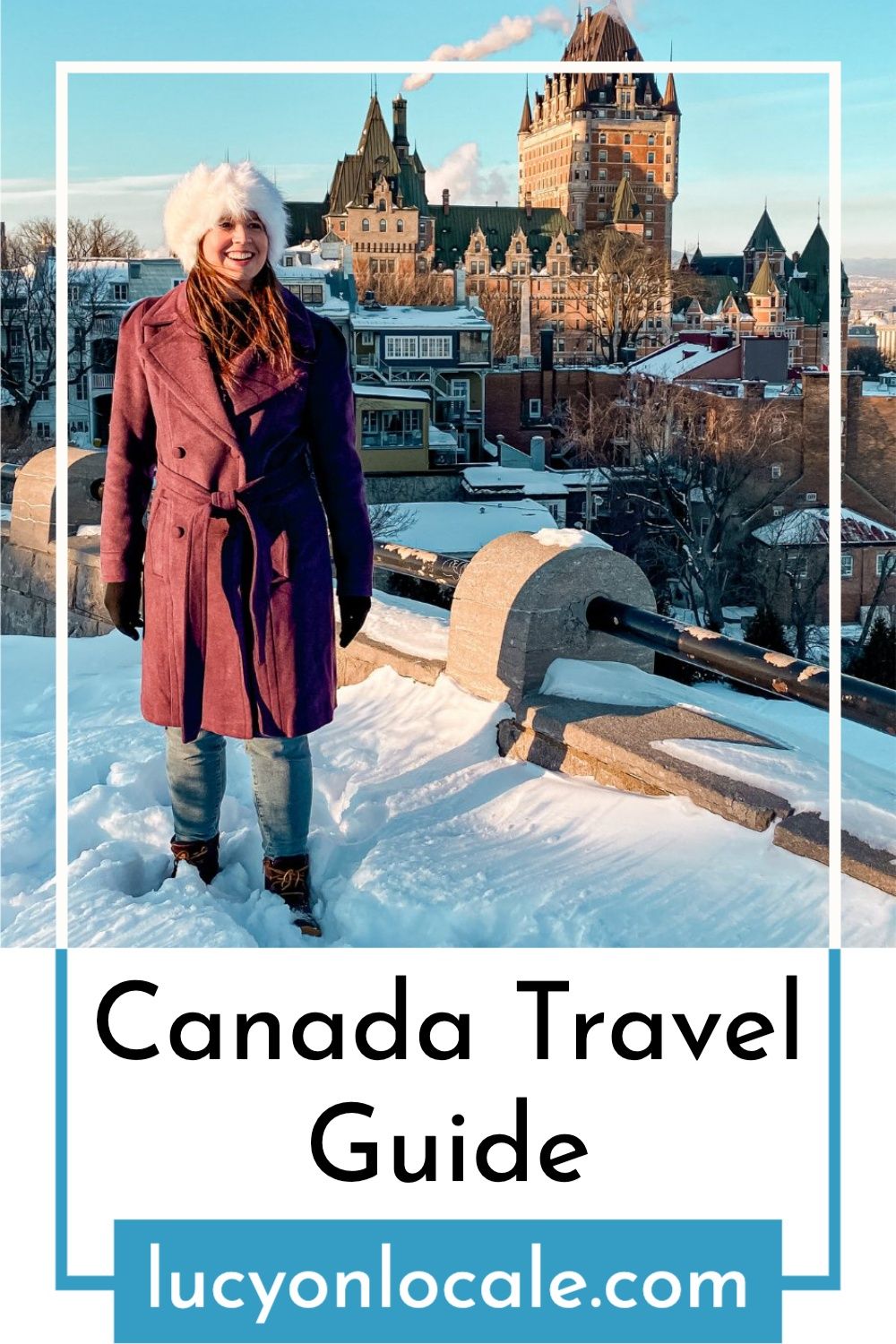Canada is known for its national parks, ski resorts, hearty food, winter activities, cities, road trips, and coastlines. Whatever kind of adventure you want to have, this Canada travel guide has everything you need for planning a trip!
Canada
Ready to plan an epic trip? Here’s the ultimate Canada travel guide!

Cities to Visit
 Banff National Park
Banff National Park
 Montreal
Montreal
 Niagra Falls
Niagra Falls
 Vancouver
Vancouver
 Victoria Island
Victoria Island
 Whistler
Whistler

Typical Costs When Traveling
Exchange Rate
The currency in Canada is the Canadian dollar. Exchange rates are subject to fluctuations, so be sure to check this as your trip approaches. On average, $1 equals about $.80 U.S., €,70 Euros, £.60 British Pounds, and 5 Chinese Yuan.
Keep in mind that all of these expected costs are an average. Prices in the cities and at ski resorts will be higher than in the smaller towns and national parks.
Accommodation
A hostel room or campsite will be between $25-40 a night (US$20-30, £15-23, €18-28, 125-200 Yuan). You can find a budget hotel for around $80 a night (US$63, £47, €56, 400 Yuan). Mid-range hotels and bed and breakfasts will be between $100–250 a night (US$80-200, £60-145, €70-175, 500-1255 Yuan). More luxury accommodations start at $250 a night (US$200, £145, €175, 1255 Yuan) and go up from there.
Airbnb prices average around $100 a night (US$80, £60, €70, 500 Yuan).
The Best Accommodation in Canada
The Best Accommodation in Canada
Food
Meals from fast-food restaurants, cafes, or food trucks will be around $15 (US$12, £9, €10,50, 75 Yuan). Dinner at a chain or local restaurant will be between $20-30 (US$15-23, £12-18, €14-20, 100-150 Yuan). Dinner at a high-end restaurant will start at $65 a plate (US$50, £38, €45, 325 Yuan) and go up from there.
Plan to spend around $7 on a glass of wine or beer (US$5.50, £4, €5, 35 Yuan) and $15 on a cocktail (US$12, £9, €10,50, 75 Yuan).
Fast food might seem cheap, but it can add up. So if you’re road-tripping and need to save some money, bring a cooler and pack your lunch.
Transportation
Individual bus, subway, or metro tickets will be around $5 (US$4, £3, €3,50, 25 Yuan) and are valid for one trip. There will also be day, 48-hour, and 72-hour passes if you’ll be using a lot of public transportation in one of the larger cities.
Renting a car will start at around $70 a day (US$55, £40, €50, 350 Yuan), and then you’ll need to pay for tips, tolls, and gas. You can find my favorite car rental sites here. Before renting a car, make sure you understand all insurance and driver’s license requirements.
How To Plan an Epic Road Trip
Taxi fares within city limits average a $4 starting fee (US$3.20, £2.30, €2,80, 20 Yuan), then around $.25 per kilometer. Uber and Lyft are also widely available in most large and mid-size cities.
A skiing day pass is between $50–90 (US$40-70, £30-55, €35-65, 250-450 Yuan).
One-way domestic flights average $200 (US$160, £115, €140, 1000 Yuan).
Amtrak trains are a more scenic way to see the country. Prices for Amtrak range from $5 (US$4, £3, €3,50, 25 Yuan) for local trips to $1000 (US$795, £590, €700, 5025 Yuan) for luxury cross-country journeys. You can find all of Amtrak’s routes and pricing here.
You’ve also got the relatively cheap Coach Canada and Greyhound bus options.

Other Expenses
I’d budget around $40 a day (US$30, £25, €30, 200 Yuan) for entrance fees, tours, guides, snacks, tips, and souvenirs.
ATMs are widely available 24/7 in banks, malls, hotels, and street corners in cities. Withdrawing cash from an ATM using a credit card (instead of a bank card) usually incurs a substantial fee. So check with your bank and credit card company to make sure you know the best ways to use ATMs to pay as few fees as possible.
Visa and MasterCard are the most widely accepted credit cards, and American Express is usually taken in hotels, restaurants, and stores. A credit card will be required in many situations, like renting a car or making a hotel reservation. You’ll also want to have some cash with you at all times for tips and if a place doesn’t take a credit card.
Tipping
Tips are expected in Canada. These are recommended tipping amounts (and you can always leave more if the service is excellent):
Restaurant servers: 15% – 20%
Bartenders: minimum $1 per drink and 15% – 20% per round
Taxi drivers: 10% – 15% rounded up to the dollar.
Hotel and airport porters: $2/bag or $5/cart
Valet parking attendants: a minimum of $2
Housekeepers: $2 – $5 per night. A card or envelope is usually provided in the room for leaving a tip.
Suggested Daily Costs
Lower End: $150 a day (US$120, £90, €100, 755 Yuan). Midrange: $350 a day (US$280, £210, €245, 1760 Yuan). Higher End: $600 a day and up (US$480, £350, €420, 3015 Yuan).

Money Saving Tips

How to Prepare for Canada
Vaccinations
The Centers for Disease Control and Prevention (CDC) and World Health Organization (WHO) recommend the following vaccinations: hepatitis A, hepatitis B, rabies, meningitis, polio, measles, mumps and rubella (MMR), Tdap (tetanus, diphtheria, and pertussis), chickenpox, shingles, pneumonia, and influenza.
Passport Health has additional information on current vaccinations and diseases in Canada, and I recommend visiting their website for the most up-to-date travel requirements.
Visas
For entry, citizens of the EU, Great Britain, and Australia will need a valid passport for the length of their stay and a return ticket. U.S. citizens must have a valid passport but don’t require a return ticket.
Most nationals don’t need a visa when visiting Canada for less than 60 days. The World Travel Guide has more information on Canada’s visa and passport requirements.
iVisa is an incredibly helpful resource for obtaining visas. iVisa makes the usually complicated and confusing process of getting a visa easy by taking care of everything for you. You fill out a simple online application, and then iVisa takes care of everything else.
Etiquette
Canadians are big on pleases and thank-yous. Bumping into someone without apologizing or not thanking someone for holding the door would be very insulting.
Commenting that Canadians and Americans aren’t much different is considered highly offensive.
In winter, when someone is about to enter the building you’re exiting, let them in first because they’re colder than you are.
Haggling is not an accepted practice in Canada.

Plan Your Trip

When To Go
Canada’s high season is June – August, when tourist numbers, prices, and temperatures are at their highest. December – March is the high season for ski resorts and snow sports.
The shoulder seasons are May and September – October. There are fewer tourists, lower prices, and moderate temperatures during these months. May is a gorgeous time for hiking and exploring the national parks (wildflowers will be everywhere), and Fall will have beautiful foliage.
The low season is November – April for everywhere in the country that isn’t a ski resort. It’s very cold during these months, and most places are open fewer days a week and for shorter hours a day. But travel costs can be up to 50% less during these months.
Because some trails and sites close during the winter months, if you’re thinking about going in the Winter (especially if you don’t want to do snow sports), make sure your top destinations and attractions will be open.
What To Pack
In addition to your usual travel essentials, you’ll want these items in Canada:
Day pack, water bottle, and hiking shoes since you’ll probably be doing at least one hike. If you’re doing any treks, make sure you have any specialized clothing or equipment you might need.
Electrical outlets in Canada are Types A and B, the same as in the U.S. So British, European, and other travelers will need an adaptor.
Rain jacket because there’s always a chance of rain. If you’re here in the winter months, you’ll want several warm layers and a waterproof outer layer for rain, sleet, or snow.
But even if you’re here in the Summer months, you’ll want a lightweight fleece, sweater, or mid-weight jacket. It gets cool all year round in the mornings and evenings in the higher elevations.
What To Wear
There are no dress requirements for men or women in Canada. You’ll just want to make sure your clothes are warm or cool enough for the time of year and the region you’re visiting.
I recommend having at least one “dressier” outfit for dinner at a nice restaurant or for visiting higher-end clubs or bars. But for the most part, you can wear whatever you want most anywhere you go.
If you’re visiting a religious site, you’ll want to wear more modest clothes out of respect.
Comfortable, practical, and interchangeable clothes are always smart choices in Canada. And bring your most comfortable shoes because you’ll be walking A LOT!

Have you been to Canada? Comment below with anything you’d add to this Canada travel guide!

Shop My Canada Travel Essentials

Frequently Asked Questions
Where should I go in Canada for the first time?
The Best Places To Visit in Canada:
1. Banff National Park
2. Montreal
3. Niagra Falls
4. Prince Edward Island
5. Quebec City
6. Toronto
7. Vancouver
8. Victoria Island
9. WhistlerHow many days is enough for Canada?
You should spend at least three days in each city and national park that you visit in Canada.
Is Canada expensive to visit?
Canada is a relatively expensive destination to visit, but it’s less expensive than Great Britain or countries in the EU. You can save some money on a Canada trip by visiting in the shoulder seasons and on weekdays, preparing your own meals, and doing free activities.
How much money do I need for 2 weeks in Canada?
Suggested Daily Costs for Canada:
Lower End: $150 a day (US$120, £90, €100, 755 Yuan). Midrange: $350 a day (US$280, £210, €245, 1760 Yuan). Higher End: $600 a day and up (US$480, £350, €420, 3015 Yuan).
So for a two-week trip, you’ll want to budget $2100 for a budget trip, $4900 for a mid-range trip, and $8400 for a luxury trip.
Which is the best month to visit Canada?
Canada’s high season is July and August, when tourist numbers, prices, and temperatures are at their highest. December – March is the high season for ski resorts and snow sports.
Canada’s shoulder seasons are May and September – October. There are fewer tourists, lower prices, and moderate temperatures during these months. May is a gorgeous time for hiking and exploring the national parks (wildflowers will be everywhere), and Fall will have beautiful foliage.
The low season is November – April for everywhere in the country that isn’t a ski resort. It’s cold during these months, and most places are open fewer days a week and for shorter hours a day. But travel costs can be up to 50% less during these months.
Because some trails and sites close during the winter months, if you’re thinking about going in the Winter (especially if you don’t want to do snow sports), make sure your top destinations and attractions will be open.
Can Americans live in Canada?
Yes. Americans can live in Canada if they have the proper visas.
Can you live in Canada without being a citizen?
Yes. You can become a permanent resident of Canada if you’re not a Canadian citizen.
How much is a meal in Canada?
Meals from fast-food restaurants, cafes, or food trucks will be around $15 (US$12, £9, €10,50, 75 Yuan). Dinner at a chain or local restaurant will be between $20-30 (US$15-23, £12-18, €14-20, 100-150 Yuan). Dinner at a high-end restaurant will start at $65 a plate (US$50, £38, €45, 325 Yuan) and go up from there.
Plan to spend around $7 on a glass of wine or beer (US$5.50, £4, €5, 35 Yuan) and $15 on a cocktail (US$12, £9, €10,50, 75 Yuan).
Fast food might seem cheap, but it can add up. So if you’re road-tripping and need to save some money, bring a cooler and pack your lunch.

This Canada travel guide is not a sponsored post, and, as always, the thoughts and opinions expressed in this Canada travel guide are entirely my own. Some of the links in this Canada travel guide are affiliate links, and, at no cost to you, I may earn a small commission.
January 26, 2022
 Destinations
Destinations Packing
Packing Travel Tips
Travel Tips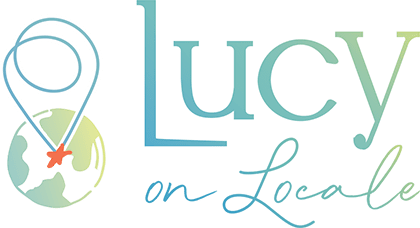
 Photography
Photography Points & Miles
Points & Miles Credit Cards
Credit Cards